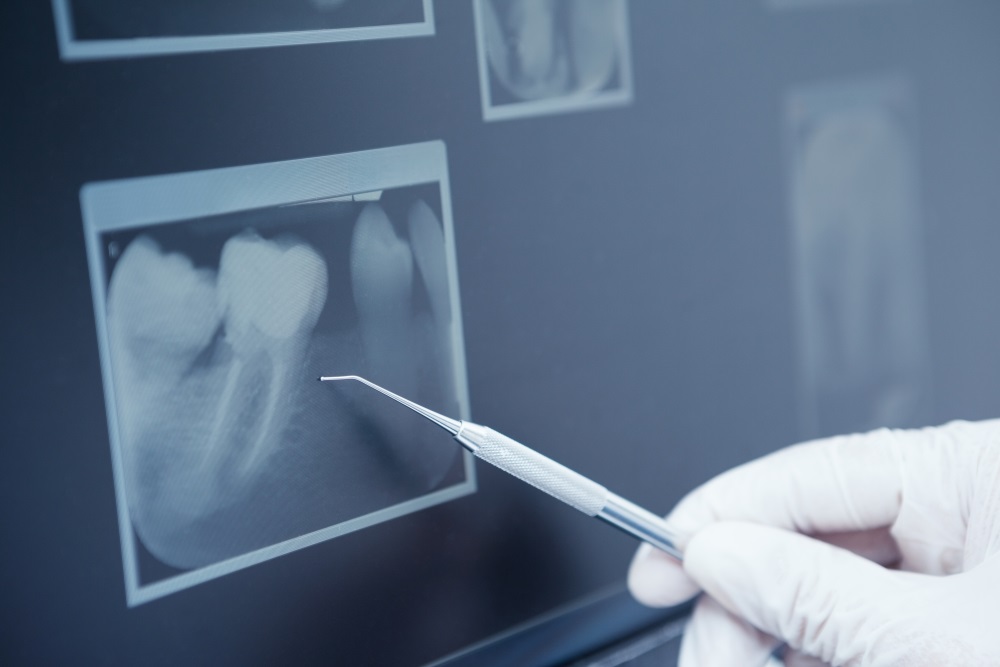Dental X-Ray Safety FAQs
Think about your last trip to the dentist. If it was a typical cleaning, you probably spent some time with hygienist, then maybe a set of x-rays was taken to examine what’s going on below the surface of your teeth.
A visual exam of the mouth alone doesn’t allow dentists to fully diagnose and treat dental problems, and especially not early before they become more serious. If, after examining your mouth and reviewing your dental x-rays, your dentist finds no cavities or other issues, you can feel even more assured that he or she has seen the whole picture.

X-rays allow dental providers to see what is underneath your gums as well as the health of the inside of the tooth. If you experiencing localized pain, an x-ray is also an essential tool to determine the problem.
All that said, some of our patients have raised concerns about the use of x-rays and the radiation that is emitted. Specifically, are the safe for adults with health problems, children or pregnant women?
Can children get x–rays?
Children are at an increased risk of cavities since their diets can sometimes be higher in sugar than adults, and getting a good brushing and flossing done can sometimes be compared to wrestling an alligator.
In fact, researchers found that in 2015-2016, about 43% of children ages 2 to 19 had cavities. Youch.
Cavities can be detected early on an x-ray, and since children need to be carefully monitored for decay, regular x-rays are an essential part of every child’s dental care. Properly administered, dental x-rays are among the safest of all radiography. The frequency of getting those x-rays is based on a dental exam and risk assessment, then a final recommendation to you.
Not only is it perfectly safe, it’s also important to take select dental x-ray images for children to help assess and monitor the development of the child’s teeth and assess susceptibility to dental disease. The American Dental Association and American Academy of Pediatric Dentistry recommend that kids who are at high risk for dental disease (i.e., have cavities or history of cavities, or signs of plaque or tarter build-up and other caries risk factors) have x-rays taken every six to twelve months.
If your child gets nervous before visiting the dentist, make sure they’re prepared for the lead apron that will be worn during the x-ray. We like to tell Dr. Ku’s smallest patients that it is their superhero cape!
Can you get dental x-rays if you’re pregnant?
When you’re pregnant, there are lots of things on your mind, and you are always wondering what you can and can’t do. However, when it comes to dental work, visiting the dentist is actually beneficial—and that includes x-rays.
The FDA, the American College of Obstetricians and Gynecologists, and the American College of Radiology all agree on the safety of dental x-rays during pregnancy. In 2017, they released a report saying x-rays, “when properly done, do not involve any risk to the unborn child” since reproductive organs are not exposed to direct x-ray beams. If you are pregnant, make sure to tell your dentist so they can give you extra lead aprons if necessary.
What safety steps are taken for dental x-rays?
If you are still anxious about x-rays, there are extra precautions your dentist can take. For example, taking a single image rather than multiple images decreases exposure significantly. You can also speak to your dentist about using the lowest radiation setting possible, particularly for children. Leaded coverings can further protect other parts of your body from radiation.
Finally, the best way to limit radiation exposure is to make sure that x-rays are only done when necessary. There is no set schedule for receiving x-rays, rather that’s up to the provider to determine if there appears to be an immediate need for a peek below the surface. If you’re concerned about exposure, ask your dentist to perform a visual examination before ordering x-rays.
To further minimize your need for x-rays, if you have x-rays from a previous dentist, make sure to transfer these to any new provider to eliminate the need for repeat procedures. And as always, remember Dr. Ku is here to listen to your questions and concerns!





